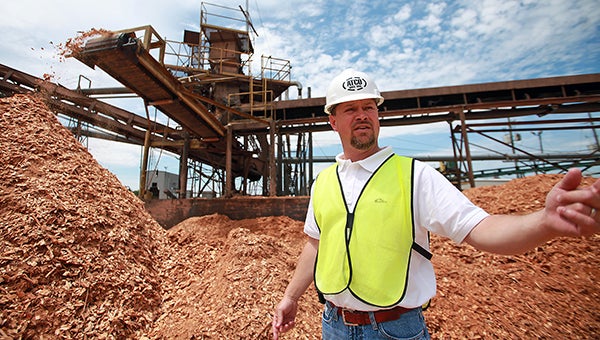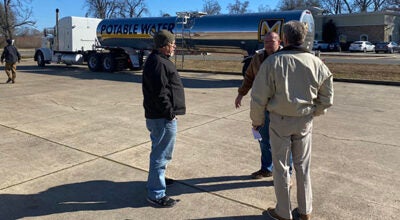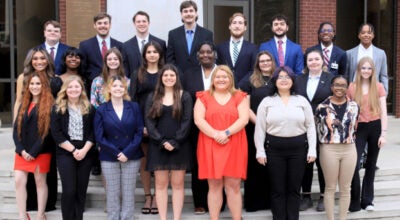‘We don’t waste anything’
Published 9:52 am Wednesday, April 22, 2015

RECYCLING: Raw materials manager Chris Barnett talks Tuesday about the wood chips and fiber fuel they use and sell at Anderson-Tully.
In an effort to be environmentally friendly, a local sawmill is using all of its resources responsibly.
“We don’t waste anything,” Chris Barnett, Anderson-Tully Lumber Company’s raw materials manager, said.
Just this Tuesday, Anderson-Tully was a bustling swirl of activity as logs were fed single file into one side of the sawmill and finished lumber appeared out of the other. Along the way bark, scrap and sawdust fell to the mill floor, but instead of sweeping it up and sending it to the landfill, Barnett uses that detritus to help save the environment while also making a buck.
“It’s kind of the same theory that you’ve taken guts, feathers and all,” he said.
That waste is converted into wood chips to be sold to paper mills for pulp products or fiber fuel used in Anderson-Tully’s power plant or sold to other plants, he said.
What is cut off the log is sent to a chipper, where it is cut up and segregated into pure chips, Barnett said. Companies that make everything from toilet paper to pizza boxes purchase the chips.
The bark and other miscellaneous pieces from the log are sent to the tub grinder and ground up into a mulch-like material for fiber fuel.
Anderson-Tully burns about 30,000 tons of fiber fuel annually in their power plant. The excess fiber fuel, about 30-35,000 tons, is sold to other companies to help meet their power needs.
The sawdust from the saws is also sold for fuel.
“You’re taking a product that doesn’t have any other purpose to its existence and using it for something. We’re able to take something that’s waste and put it to use,” Barnett said. “It’s an extra source of revenue, obviously, but also you’re not leaving anything to waste. From the dirt to the leaves, you’re getting something out of everything.”
Christopher J. Tully founded Anderson-Tulley in 1889. It soon moved from Benton Harbor, Mich. to Vicksburg and grew to become one of the largest hardwood producers in the U.S.





